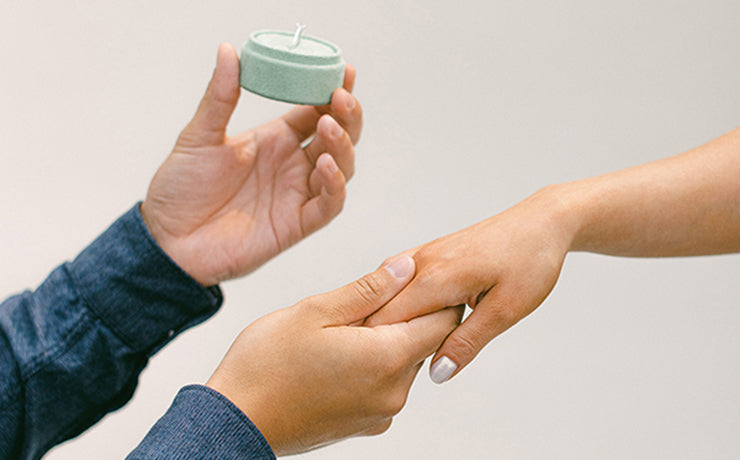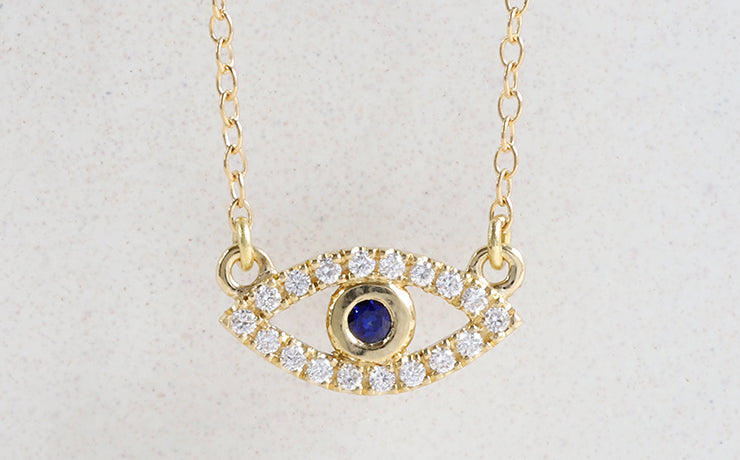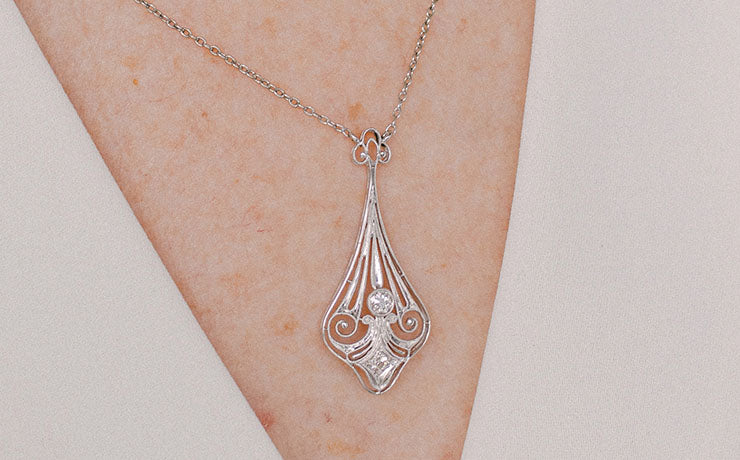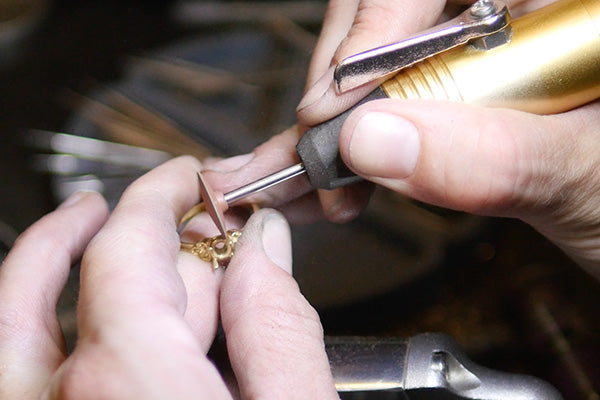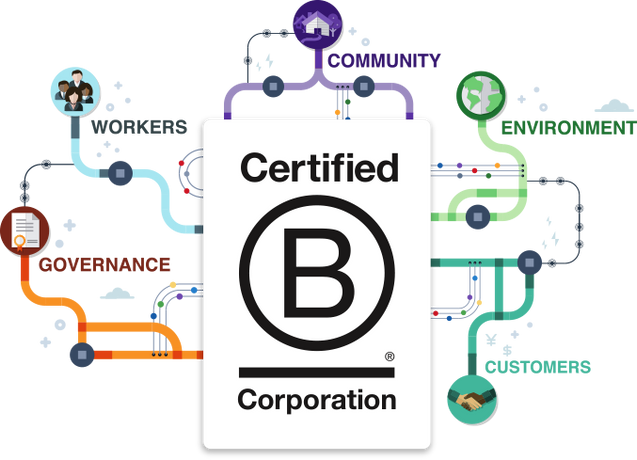'Louping You In' Issue 1: Our BCorp Certification & Why It Matters

In the simplest terms, what does it mean to be a BCorp company?
The two main areas BCorps prioritize are positive environmental and social impact. To be a certified BCorp company we are obliged to go above and beyond; it pushes us to be better, and to be a force for good rather than simply a machine for profit.
Why should consumers choose to buy BCorp products?
BCorp certification assesses the wages of a company’s labour force along with whether they are committed to local sourcing, giving you a good sense of what that company does with its revenues and how it impacts local communities. By contrast, those metrics are less clear with either an uncertified company or a company whose disclosures and claims are not third-party verified. From a price perspective, BCorp products can sometimes cost more, but ultimately, they still need to be competitive in their marketplace. Price is what you pay, but value is what you get and many BCorps’ value proposition exceeds the competition.

We're hearing a lot about ‘greenwashing’ these days. While it seems every company is claiming to be ethical and environmentally-friendly, what should the customer know?
Greenwashing is a generic term for a company or product claim that misleads a consumer into believing that the purchase of a product has a greater positive social and/or environmental impact than it does in reality. Claims made by BCorps are subject to more scrutiny, but that doesn’t mean all claims made by a BCorp are verified during the BCorp audit–that would be impossible. However the fact that BCorp certification offers third party validation for many ESG/DEI claims means that greenwashing is far less likely to occur for BCorp companies.
The BCorp certification is a large and important validation point for anyone interrogating a company’s claims, but it is still a single data point. Consumers should look at other independent validation/certification for claims made. This could be in the materials they use (e.g. Fairtrade certified) or for employment standards (e.g. certified as paying a living wage). Then there is anecdotal evidence for how the company conducts itself within the concentric circles of communities and stakeholders that surround it.
Recently there was a BBC Article that brought into question the validity of the BCorp Certification. What do we think of this article and why?
The article repeatedly states that the BCorp certification is one point and not an endpoint. We agree. Are there BCorps that are engaging in greenwashing? It is possible! But in aggregate, there are far fewer of them than in companies whose practices have not been scrutinized by a third party.
We are neither apologists nor advocates for any of the certifications we hold. They are all flawed in their own ways. But from a best practices perspective, they provide context and metrics for companies such as ours to improve.
Why do companies need multiple certifications, why can’t you rely on just one?
When you were in school and you wrote a research essay, what grade do you think you'd get if you had only one source in your bibliography? Having multiple third-party certifications helps us hold ourselves to the highest possible standards, both for businesses at large, and for those that are specific to our industry.

Several industries that clear-cut forests to extract minerals or produce food have recently come under fire for deforestation. How does FTJCo address deforestation in places like DRC or South America, where we've sourced our AKARA gold?
We use recycled gold to mitigate environmental issues such as deforestation while also using artisanal gold sourced from small mines under the auspices of an NGO (as in the case of the Just Gold from DRC) or a standard such as Fairmined. Using artisanal gold helps support communities in regions where there may be few economic opportunities. Deforestation when it comes to gold mining is usually the result of illegal and/or open-pit mining operations. The artisanal gold we presently source from Colombia is from subterranean minds where deforestation is much less of an issue. Our default gold, under the AKARA People+Planet label, is a blend of 50% recycled and 50% artisanal gold. As a result, FTJCo-made jewellery has both a positive social and environmental impact. But we understand that our clients may have different priorities, so we also offer 100% artisanal or 100% recycled gold as options.

What sets jewellers with BCorp certification apart from the rest?
A jeweller who has taken the time and effort to become a BCorp stands out for thinking and caring about the issues and metrics comprising the BCorp standard - everything from the impact of their materials sourcing, their environmental footprint, and their social impact, both at home and around the world. The certification is a great forward looking indicator, but it doesn’t mean that the jeweller should not continue to improve and not interrogate the claims made by their suppliers (even if their suppliers are BCorps themselves). At FTJCo, we are always asking ourselves, How can we continue to improve? How can we push our industry to be better?
Why should our clients care if we’re a BCorp company or not?
Our BCorp certification is a beacon to our clients that indicates our values as a company. It says, "We aren't just here to make pretty things - we're here to make a difference." Being a BCorp helps socially- and environmentally-minded clients find us, and reassures them that they've chosen a company whose values align with their own.
That said, while some clients love that we're a BCorp, others may not notice or care. The certification has no direct bearing on the style and look of our products (unless you consider that our pieces are designed and made with structural integrity, to ensure they have the longest lifespan possible, thereby reducing environmental impact over time).
Either way, we have an obligation to produce a well-made (and beautiful) product that is competitive in the market. If we fail to do that, then the certification matters not a wit.
BCorp certification gets harder and harder every three years, why do we keep doing it?
We keep doing it because we want to learn more, improve and get better. The assessment we have to take every three years is an opportunity to learn about what we could be doing and what’s become more important since the last time we took it.
What’s the most impactful thing that’s come from FTJCo being a BCorp?
We have many accolades, of which we're very proud. But the most impactful thing that's come from being a BCorp is our mindset of mindfulness. We think about every decision we take as a company and how it will affect our stakeholders, the environment, and our community.

Questions answered by Robin Gambhir, Co Founder FTJCo
Edited by Isabel Gertler, Marketing and Insights FTJCo
Canadian* BCorps, our Team Loves!
Food: Prana, Drizzle Raw Honey, Arva Flour Mills, Good Food For Good
Beverages: Flow Alkaline Spring Water, Greenhouse Juice, Reunion Coffee Roasters, Libra Non-Alcoholic Craft Beer, Ernest Cider Co., Bench Brewing, High Park Brewery
Beauty: Cheekbone Beauty
Household Products: Tru Earth, The Unscented Company
Clothing: Kotn, Frank and Oak, TenTree
Shoes: Oliberté, Poppy Barley
Tech: Pela Phone Cases, Bullfrog Power
*Based on our research, these companies listed above either are Canadian businesses or have some of their operations in Canada.
 Solitaire
Solitaire
 Solitaire with Pavé
Solitaire with Pavé
 Bezel Set
Bezel Set
 Halo
Halo
 Multistone
Multistone
 Unique
Unique
 Nature Inspired
Nature Inspired
 Everyday
Everyday
 Wider Band
Wider Band


